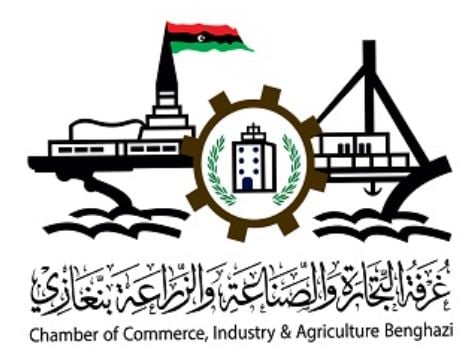By Abdulla Boulsien.

Tripoli, 31 October:
All things being well, Prime Minister-elect Ali Zeidan will form a new government today, ending several months . . .[restrict]of political hiatus in Libya. Getting the economy moving will certainly be high on the government’s list of priorities.
To that end, amongst the first orders of business should be the urgent reappraisal of a piece of legislation passed quietly by the Ministry of Economy on 5 July, but which can and already is damaging Libya’s economic prospects.
Decree No. 207 of 2012 relates to the establishment of joint ventures and the ability of foreign shareholders and investors to co-invest alongside their Libyan partners in new enterprises. This decree was a surprise and a big step backwards for Libya. I believe it defeats the purpose of building a diversified, broader, more equitable Libyan economy and is to the detriment of the development of our economy.
The decree reversed a number of key clauses which were passed only six months ago in May 2012. Why the abrupt and significant change in policy? The previous Decree No. 103 of May 2012 was a progressive iteration of the joint venture investment law, which has been in force for several years. The changes outlined in Decree No. 207 are very simply bad for investment; bad for smaller or new businesses and good for the bigger more established Libyan businesses. I don’t think it would be too dramatic to say that the Ministry of Economy has just suspended potentially large amounts of foreign investment which may have been attracted to Libya.
What specifically is negative about the recent decree and different to the May 2012 decree?
Well, first it requires shareholders to fully pay up a joint venture’s share capital upon incorporation. This does not help those Libyan businesspeople with insufficient capital to start a business.
Second, the list of restricted industries which joint ventures are not allowed to participate in has been extended. This keeps ‘off limits’ additional sectors which younger, more nimble, more professional and sophisticated Libyan entrepreneurs and foreign investors might have been able to compete in.
Third, Libyan shareholders can only issue up to 49 per cent of a joint venture to a foreign partner (rather than 65 per cent outlined in Decree No. 103). In other words, foreign companies cannot ever own more than half of any company set up in Libya. A foreign investor often provides most capital required in a new enterprise. With the reduction to 49 per cent, many Libyan start-up ventures, which might previously have been funded by foreign investors, will no longer be capitalised by such partners.
Let’s be pragmatic. What are the benefits of this decision? On the face of it, new companies will be majority owned by Libyans. This is undoubtedly positive. But I can’t think of any other major advantages. Besides, this is no longer an advantage if there is significantly less capital for these majority Libyan owned companies to use to grow their business. Also, less capital means less international expertise and experience brought into the Libyan economy.
Decree No. 207 harms two drivers which are key to developing and encouraging the Libyan economy, the private sector and foreign investment:
1. It creates obstacles to developing the Libyan Private Sector
The Libyan private sector will be the main driver of job creation in Libya in the coming years. Our public sector is bloated and actually needs to reduce employment levels in the medium term. The amendments in Decree 207 negatively impact and serve to limit the freedom and ambitions of entrepreneurial and skilled Libyan businesses or business people who have insufficient capital to invest in their own companies. Such businesses will be the lifeblood of job creation and they need to be encouraged and incentivised. These amendments make it difficult for such businesses to start and to grow. We don’t believe that this is the intention of the Libyan government.
2. Significant negative impact on Foreign Investment
Investment in the oil sector is unlikely to be impacted much since it operates under a separate legal framework and it is not a huge employer of Libyan nationals anyway.
However, Decree 207 frightens away valuable and necessary foreign direct investment (FDI) and related technical expertise in other sectors. Libya desperately needs investment and training in most other sectors. Non-energy sectors will be the biggest drivers to job creation and wealth distribution in Libya. They will be the key industries which will employ some of the more-than 30 per cent unemployed Libyans under 26 years of age.
Libyan laws and practices are not currently favourable to foreign investment or indeed doing business in general. Libya is globally considered an extremely difficult place to do business. In the most recent World Economic Forum’s Global Competitiveness Report, we rank an overall 113th out of 144 countries. We are 140th in financial market development; 116th in business sophistication and 129th in innovation. These rankings are appalling and we need to be doing everything we can to stimulate investment and grow and diversify the economy, not stifle it.
If Decree 207 remains in force, foreign investors will reduce their allocations of investment to Libya. One must not forget that in the vast majority of joint ventures, the foreign partner contributes capital disproportionate to their shareholding. In other words, they fund the Libyan partner. If a foreign investor can only own 49 per cent, then they are unlikely to invest. Why? Put yourself in their shoes, if you put most of the money into an enterprise, you would want some control of how it is spent and invested. If you can’t then you don’t invest. International investors have plenty of global opportunities. They don’t have to come to Libya.
Foreign partners also often bring with them expertise, governance, controls, frameworks, strategies, new products, and services which our country so desperately lacks. Less investment means fewer of these benefits for Libya.
This decree is detrimental to the smaller, newer, entrepreneurial and ambitious Libyan business, not the established Libyan business. Larger businesses can afford to invest in enterprises themselves and ‘buy’ foreign expertise. On the whole, they have history on their side and reasonable financial resources at their disposal. Many of these companies have interests in a not insignificant portion of the Libyan economy. They are the economic elite. Every nation has an economic elite. There is nothing wrong with this – as long as there is a level and even competitive playing field.
This decree frightens away foreign capital, which may have invested with the smaller enterprise or the ambitious Libyan businessperson who is eminently qualified in their field but lacks funds.
It also has a nasty side-effect. It assists in the creation of monopolies and provides the platform for the creation of oligarchs. It sustains and protects the larger Libyan enterprises or the wealthier businessman. It is not protectionist. It is defeatist. It does not aid in building our economy. It does not protect the small-time Libyan businessman or woman. It limits them.
It inhibits potentially vibrant, professional, vigorous and ambitious start ups and companies in their early growth stages from accessing foreign capital. This law allows for a limited number of businesses to monopolise large swathes of the Libyan economy. Limiting competition and erecting barriers to FDI is incongruous to the overwhelming public desire to build a diversified economy, both through industries but also through opportunity and subsequent wealth creation and distribution.
Libya should receive its share of foreign investment if a balanced framework exists for such investment. Comparing foreign direct investment into Libya with our Maghreb neighbours, we perform poorly.
In 2009, Tunisia received approximately $1.6 billion of non-hydrocarbon FDI or 3.7 per cent of GDP. Egypt benefited from approximately $6.1 billion of non-hydrocarbon FDI or 3.2 per cent of GDP. Even a resource rich nation such as the UAE received approximately USD $3 billion of non-hydrocarbon FDI or 1.1 per cent of GDP. Libya on the other hand, a country larger than UAE, received 2009 non-hydrocarbon FDI of approximately USD 0.5 bn or 0.8 per cent of GDP.
By any reasonable calculation, Libya should be attracting at least an extra USD 1 billion of non-hydrocarbon foreign investment into its economy, versus what it currently receives. How many jobs would this create? Imagine the level of expertise which could be transferred to Libyan nationals.
If a balanced structure is developed which attracts FDI, but supports Libyan nationals and businesses, then we can create a win-win situation.
We have to give Libyan businesspeople the choice. If they want to give majority control of an enterprise in return for valuable investment capital in order to grow, then that is their decision. If they want a majority stake, then they do not have to enter into such an arrangement with a foreign partner and they can proceed, invest and establish an enterprise themselves. At least it is up to them. Why is the Ministry of Economy determining what shareholding an ambitious Libyan team can give to its partners?
Perhaps the Ministry believes that, in introducing this decree, foreign investment which was targeted at Libya will continue to come because the ‘opportunities’ are so ‘huge’ and therefore the foreign investor will succumb to a lower shareholding, by force. At best, this is a naive perspective. At worst, it reflects a lack of understanding of foreign investment.
The original 2006 joint venture legislation (upon which Decrees 103 and 207 are based), gave Libyan shareholders the chance to own a stake in a company, to earn sizeable income and to be part of the private sector. Many of these original joint venture companies were funded by foreign partners, with the Libyan partner receiving most of their shares for little capital contribution. The original legislation gave all of Libyan enterprise an opportunity to participate in a hoped for ‘wave of foreign investment’ (which mostly never came because of a mix of stagnant reforms, corruption, bureaucracy, and competing international investment opportunities).
It also provided all enterprise with some protection. The original legislation restricted activities in certain sectors and sought to identify industries protected for Libyan enterprise. It had burdensome requirements on share capital and imposed Libyanisation in certain areas. Whilst it was far from an open and competitive market, it was liveable and indeed necessary during the initial growth phases of the Libyan economy.
This new, revised, more restrictive legislation however, essentially suspends large amounts of foreign investment and, by extension, reduces opportunities for the ‘man on the street’.
Further to the reversal of strategy, what has caused considerable concern in the international business and investment community is that the Ministry announced this significant policy reversal without warning and without consultation and also seeks to apply it to enterprises established years ago.
This creates confusion and uncertainty about the legal framework of investment in Libya and sends a negative signal to international business, particularly as there are still many within that community who have suffered in the past when the sanctity of contracts, rule of law and investor protection mechanisms were overruled or ignored. It is detrimental to all efforts to promote and highlight Libya as a place to invest in.
Libya must compete in a global marketplace where many attractive markets exist in which to invest. Given global economic woes, even developed nations are competing to entice investment and to kick-start their economies. In many resource rich countries, there is recognition that economic diversification is required and that non-hydrocarbon industries need appropriate and progressive investment frameworks to attract capital and expertise.
I hope Ali Zeidan’s new transitional government appreciates the need for progressive investment frameworks and reverses Decree No. 207, for the good of the country and those private sector businesses which will be the drivers of job creation in new Libya.
Abdulla Boulsien is a Libyan investment banker. He is an advocate of reasonably free markets, private enterprise, and meritocracy. [/restrict]










